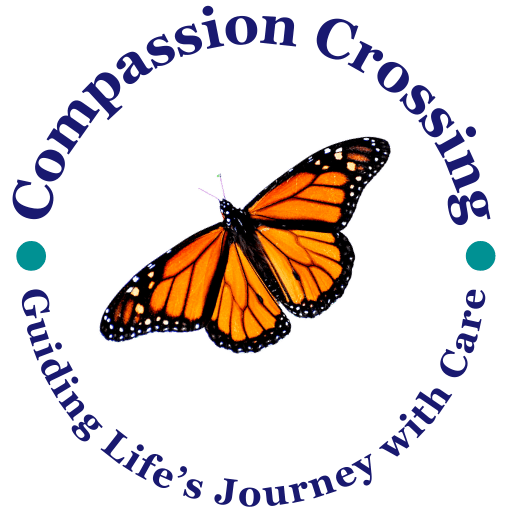Understanding Creutzfeldt-Jakob Disease (CJD) and How to Care for Your Loved One
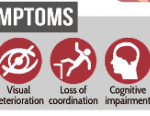
Facing Creutzfeldt-Jakob Disease (CJD) can be overwhelming, but with the right information and compassionate care, you can navigate this journey with your loved one. This guide is designed to help families new to CJD understand what to expect, recognize changes in their loved one, and provide the best care from onset
Navigating the Journey: A Guide to CHF and COPD Exacerbation Prognosis
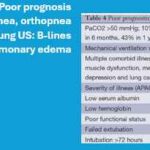
Dive into our in-depth analysis of CHF and COPD exacerbations. These critical events shape patient outcomes through expert insights and compelling case studies. Discover strategies for managing expectations and improving quality of life in the face of chronic illness.
Music Therapy: A Melody of Hope for the Terminally Ill

If you or someone you love is facing a terminal illness, you may feel overwhelmed by the physical, emotional, and spiritual challenges that come with it. You may wonder how to cope with the pain, the fear, the grief, and the loss of control. You may also want to find ways to make the most of the time you have left and to leave a lasting legacy for your loved ones.
Music therapy is a form of therapy that can help you and your family deal with these issues. It involves using music and musical activities to improve the health and well-being of people of all ages and backgrounds. Music therapy can help you express your feelings, communicate with others, relax your body and mind, cope with pain and stress, enhance your spiritual connection, and create a meaningful life story.
Hospice Care: A Purist vs. Non-Purist Approach

Dive into the contrasting philosophies of purist and non-purist hospice nurses and doctors. Understand how their views on medication and patient care differ, shaping the terminal phase of a patient’s journey. This article highlights the delicate balance between medical intervention and quality of life in hospice care.
Demonstrating Compassion

Discover practical ways to show compassion in hospice care. Learn how small gestures like active listening, gentle touch, and respecting personal space can make a significant difference. Explore the importance of empathy, cultural sensitivity, and self-care for caregivers in providing compassionate end-of-life support.
Understanding Kidney Cancer: A Guide for Families
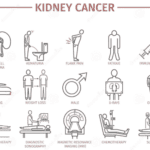
Receiving a diagnosis of kidney cancer for a beloved family member can be a challenging experience. However, by comprehending the stages of the disease and learning how to offer optimal care, you can help alleviate some of the overwhelming feelings associated with this journey. This article aims to empower you, a caring family member, with valuable insights. You will gain an understanding of the progression of kidney cancer, discover how to identify shifts in your loved one's condition, and learn how to provide exceptional care from the moment of diagnosis to the end-of-life phase.
Navigating Dementia: A Guide to Supportive Supplements

Discover how Lion’s Mane, Magnesium Glycinate, Vitamins D3, K2, B1, Folate, C, and MTC Oil can play a role in dementia care. This article delves into the latest research and expert insights on natural supplements that support cognitive function and overall brain health.
The Final Journey: Understanding Why the Actively Dying May Linger

Explore the profound journey of the actively dying. This article unravels the reasons behind their lingering, examining medical interventions and the emotional need for closure. Gain insight into this delicate phase of life."
Understanding End-Stage PSP: A Guide for Families
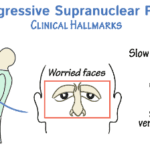
Navigating the complexities of end-stage Progressive Supranuclear Palsy can be challenging. Our comprehensive guide provides essential information, practical tips, and empathetic support to help families and caregivers through this difficult time.
Educational Topics for Hospice Nurses During Admission and Post-Admission Visits

Discover essential educational topics for hospice nurses during admission and follow-up visits. Learn how to effectively communicate with patients and families, manage symptoms, provide emotional support, and navigate end-of-life care. Enhance your skills to deliver compassionate, comprehensive hospice care.
Natural Remedies for Dementia Anxiety: Ashwagandha and CBD

Explore the use of ashwagandha and CBD to ease anxiety in dementia patients. Learn about dosages, safety precautions, and real-life stories.
Understanding and Managing Sundowning in Dementia: Ensuring Safety for Your Loved One
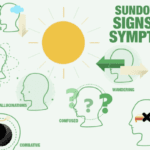
Sundowning, or "late-day confusion," is a challenging experience for individuals with dementia and their caregivers. This phenomenon, occurring in the late afternoon or evening, brings about increased confusion, anxiety, and agitation. Caregivers need to comprehend sundowning and offer compassionate care to ensure the well-being of their loved ones. This article delves into effective pharmacological and non-pharmacological strategies to manage sundowning and create a safe environment.
Understanding Ovarian Cancer: A Guide for Families
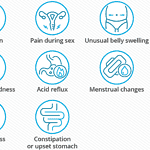
When a cherished family member receives an ovarian cancer diagnosis, the path ahead can feel daunting and complex. As a hospice registered nurse case manager specializing in empathetic end-of-life care, I am here to offer you clear and compassionate direction. In this article, we will discuss the anticipated stages of ovarian cancer, the transformations you may notice in your loved one, and effective methods to ensure optimal care from diagnosis to the journey's close.
Caring for Elderly Parents with Dementia Who Refuse Help
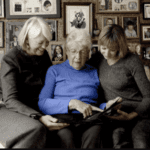
Navigating the challenges of caring for an elderly parent with dementia can be tough, especially when they resist help. This guide offers practical advice and compassionate strategies to support your loved one while respecting their autonomy and dignity.
Understanding Dementia Medication Side Effects: A Guide for Families

Discover the potential side effects of dementia medications and how to support your loved one. Stay informed!
Hospice Care Eligibility: Understanding the Six-Month Rule
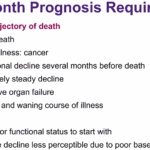
Discover the true nature of hospice care in the U.S. This guide clarifies eligibility, focusing on comfort for those with a terminal prognosis of six months or less, and the support available for families and caregivers during this journey.
The Importance of Routines and Consistency for Patients with Dementia
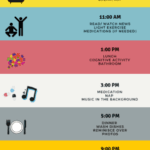
Maintaining routines and consistency can significantly improve the overall well-being and quality of life of a loved one with dementia. As a caregiver, understanding the value of routines and how they can positively impact your loved one's journey through dementia is crucial. In this article, we'll explore why routines matter, how to establish them, and their benefits to patients and caregivers.
Choosing Your Hospice Care: Understanding Patient and Family Rights

An article that guides families through understanding and exercising their rights to choose the best hospice care for their loved ones, ensuring their final chapter is written with compassion and respect.
Encouraging Dementia Patients to Take a Bath or Shower: 3 Gentle Methods

Discover gentle methods to encourage dementia patients to bathe. Learn how to create a positive bathing experience, use distraction techniques, and maintain a consistent routine. These compassionate approaches help caregivers navigate hygiene challenges while preserving dignity and reducing stress for both patient and caregiver.
Understanding Thyroid Cancer: A Guide for Families
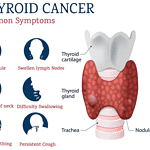
Thyroid cancer presents challenges not just for patients, but also for their families. My role is to be your guide, as a dedicated hospice registered nurse case manager, throughout the various stages of this disease. I'm here to equip you with the essential knowledge needed to provide compassionate care for your loved one. In this article, we will delve into what you should anticipate during the course of thyroid cancer, how to identify changes in your loved one's condition, and how to offer optimal care from the initial diagnosis to the end-of-life journey.
Doctors Ignoring Family Concerns in Dementia Care

Welcome to our discussion on a topic close to many hearts: the care of our loved ones with dementia. When a family member is diagnosed with dementia, it feels like a part of them slowly fades away. But as they lose parts of themselves, your role in their life becomes even more crucial. This article isn’t just words on a page; it’s a beacon of hope and understanding, shining a light on why your voice, as a family member, is vital in the care of your loved one.
Hospice Access for Undocumented Immigrants

Welcome to our guide on hospice care for undocumented immigrants. This article is crafted with the utmost empathy to support family members and caregivers as they navigate the complexities of end-of-life care. Our goal is to provide a clear understanding of hospice services and the unique challenges faced by undocumented immigrants during these tender moments.
Understanding Repetitive Questions of Dementia Patients

When caring for a loved one with dementia, it's important to approach their needs with empathy and understanding. Dementia is a progressive condition that affects memory, thinking, and communication. As a caregiver or family member, it's crucial to adapt your communication style and strategies to best support your loved one. This article will guide you through the stages of dementia, address common symptoms like anxiety and agitation, provide techniques to reduce caregiver burnout, create a calm environment, and effectively respond to repetitive questions.
Understanding Hospice Eval and Treat Orders
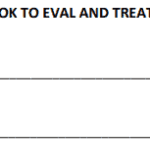
In the world of healthcare, when a provider writes an order to "Eval and Treat" for hospice, they are asking for a thorough evaluation and a tailored treatment plan. This is specifically meant for patients who are being considered for hospice care. Let's delve into what this means and why it's crucial.
What Does "Eval and Treat" for Hospice Mean?
